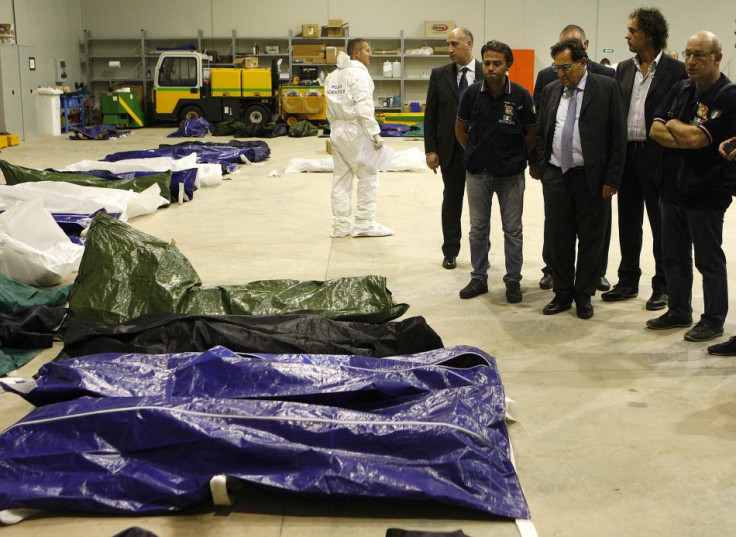Lampedusa Boat Sinking Turns Focus on Snowballing Refugee Crisis

The Lampedusa boat tragedy has yet again turned the spotlight on illegal immigration and its perilous journeys even as authorities blame stringent European policies for such disasters.
The sinking of the boat, overloaded with nearly 500 migrants, provides a stark reminder of how ill equipped the refugee vessels are.
People desperate to escape from war-torn African countries often pay hefty sums to smugglers in order to get to Europe.
The number of asylum-seekers arriving in Italy has significantly increased from last year. While the first half of 2012 saw 4,500 refugees, the same period in 2013 has already witnessed 7,800 migrants, according to UN figures.
The sharp spike is also due to the new eight-mile wall between Greece and Turkey, erected to stop the influx of illegal immigrants into Europe by land.
The Mediterranean Sea route has increasingly become an option for people literally caught between the devil and the deep blue sea.
Not that warnings were lacking. The Lampedusa sinking took place within days of concern expressed by UN High Commissioner for Refugees Antonio Guterres.
"These persons [refugees and asylum-seekers] are often forced to rely on the services of smugglers, exposing them to harassment and exploitation, beatings, the risk of trafficking, or even death," Guterres told a gathering during an executive committee meeting on 1 October.
Guterres added: "Substandard reception arrangements, the disproportionate use of detention, including as a deterrent to future arrivals, and a lack of adequate burden-sharing arrangements among states are our main concern. In addition, not all states are doing enough to fight intolerance, racism and racially motivated violence, which pose serious risks to the safety of refugees and other foreigners."
People smugglers often moor their vessels miles off the Sicilian island of Lampedusa to escape coastguard patrols.
During the last two decades, at least 25,000 refugees have lost their lives in the Mediterranean, according to figures provided by the International Organisation for Immigrations.
Syrian Refugee Crisis
The world's refugee crisis has worsened because of the Syrian conflict which has displaced some two million people. Scores of Syrians have been seeking refuge along the Italian coast recently, according to reports.
European nations with long coastlines such as Italy, Malta and Spain have had to bear the brunt of the exodus.
"We need more [EU forces] boats in the sea. I think the reason why people continue to take these risks is that Europe has made it more difficult. In 1992 we had twice as many asylum applications in Europe as we do today. We are forcing people to take increasingly dangerous routes and what we need to do is to intervene and put human lives first," James Stapleton of the Jesuit Refugee Service told Vatican Radio.
Every EU member state has its own immigration policy, effectively leaving the countries most affected by the issue - Italy and Greece - to cope with the influx.
There is no legal agreement on automatic sharing of refugees among nations and welfare measures for asylum-seekers vary from country to country.
Following the criticism over the latest tragedy, the EU's Home Affairs Commissioner insisted that the 28-member bloc is not shutting the doors on immigrants. The commissioner's spokesperson Michele Cercone said: "We have to make sure that we open more legal ways to come to Europe," adding that such measures would require "precise and strict conditions".
The EU's Home Affairs Committee has also come up with a resolution urging member states to help with the mass influx of refugees.
The border surveillance system known as EUROSUR is awaiting approval from the European Parliament to become operational in December 2013. It will closely monitor vessels carrying illegal immigrants.
© Copyright IBTimes 2024. All rights reserved.






